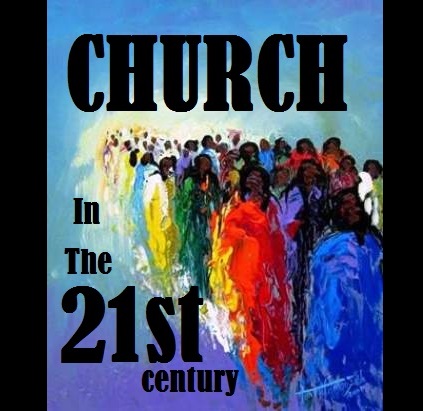 What you are about to read has taken more than 25 years to formulate in my Spirit. Unlike many “local yokels” who think they and/or their denomination have scripture and the will of God all figured out, I have learned that scriptural understanding is an ongoing and never ending process. I am ready to give an account to the Lord for what I am about to share with you today. And I know we all will have to face Him someday for what we teach.
What you are about to read has taken more than 25 years to formulate in my Spirit. Unlike many “local yokels” who think they and/or their denomination have scripture and the will of God all figured out, I have learned that scriptural understanding is an ongoing and never ending process. I am ready to give an account to the Lord for what I am about to share with you today. And I know we all will have to face Him someday for what we teach.
Words have meaning and consequences. In this changing culture every word needs to be measured, and some words need to get back to their original definitions. As you read this, my faith is not in my ability to express myself with the written word but in God the Holy Spirit who is the interpreter of everything. So let’s begin.
Looking back at the church of the first century, we discover that:
THE FIRST CENTURY CHURCH
1. Christianity was a daily lifestyle.
2. There was an understanding of only one church per city/region/world.
3. There were many local groups or gatherings. Five-fold leadership was known and respected.
4. Gatherings moved from house to house or wherever the disciples met.
5. Apostles & prophets modeled the Christ-life for disciples to emulate.
6. Elders were appointed in every local gathering in the city/region by apostles.
7. The post-ascension Apostles were also elders in their communities.
8. Apostles and elders heard from all, and the Spirit carried out Christ’s government in His church.
9. Elders functioned in plurality under the delegated authority of the Lord Jesus.
10. Those who ruled (administration, oversight, stewardship) well were worthy of double honor.
11. These were overseers (bishops) who ministered and served regionally.
12. They received the voluntary obedience and submission of the saints as unto the Lord because of their maturity, example, and testimony not because of office, position, or title.
13. Elders were under-shepherds of the Chief Shepherd, the Lord Jesus.
14. Christians met together daily with no set schedule because they loved one another, not once a week to get their blessing.
15. The majority of the finances went to the poor, widows, and the fatherless.
While an individual elder may have provided oversight of an individual fellowship within a city, he did so in relationship with and in cooperation to the larger body of elders in that city or region. There were no mutually independent fellowships of the larger church. The church in each city or region was constituted as one body and functioned with many expressions. When it failed to do so, correction was brought (I Corinthians 3:3-17).
I am sure I have left out something in these short 14 points but I am open for assistance and clarification.
Looking at the present-day church, we discover that:
THE 21st CENTURY CHURCH
1. Christianity has largely become a weekly ritualistic observance.
2. There are many denominational and independent churches (divisions) in a city or region.
3. People call a building “the Church”. People say “they are going to church.”
4. We have substituted the church in a city or region for local fellowships that function from two basic misconceived forms of governance:
In one we have the idea of an autonomous (self-ruled) local church with little or no connection to the church in the city or region.
In the other we have the idea of denominational rule, which segregates us based upon denominational understanding of things like doctrine, rules of governance, and sacraments, etc.
5. Too often decisions for the body are made either congregationally (democratic vote), or by those “in positions of authority or power.”
6. While most would declare these decisions are bathed in prayer, in actual practice decisions are often made, and then prayer is made for the decision to be supported by God and accepted by the governed. And all of this is often without regard to the impact on the rest of the body of Christ in the city or region.
7. Deacons, who are scripturally called to serve tables and minister to the saints, now serve on boards and make decisions.
8. The word “elders” (plural) has been exchanged in the modern local gathering for the word “pastor” (singular) with a totally different meaning.
8. The word “pastor” is supposed to be a shepherding gift for all. Now it’s used as a title for the one in charge.
9. Congregations and/or denominations now hire their pastors.
This places the pastor in an untenable situation as the main or major leader of the local gathering. As one who is paid by the people one leads, the situation will arise requiring the leader to choose between obeying God or submitting to the people who pay one’s salary. This is inevitable.
The pastor also faces the fact that pastoral salary is tied to the pastor’s ability to build and keep a large congregation. Here I reflect on Jesus’ words In Matthew 16:18 where He said, “I (He) will build my (His) church.”
10. Pastors are, in many situations, much like CEO’s who, along with hired staff run the local church.
11. Pastors often function individually and independently and are considered the “heads” of their flocks.
12. Pastors can and often do become hirelings who sell their resume. They are often only accountable to their own choices about where and how long to serve a local church.
13. Boards constitute the ruling government of the church on paper while most have no real day to day authority over the pastor or denominational leaders.
14. There is more attention placed on getting the “right” doctrine than living and modeling the “Christ-life”.
15. The majority of the finances go to pay for buildings, salaries of professional paid clergy, and their staff.
While there are many elders with a pastoral gift who are truly called by God as genuine under-shepherds and overseers, the contemporary religious systems and traditions minimize their effectiveness. This is particularly true when it comes to fulfilling the purpose of God to bring His government and glory to the earth realm. Today value and success are determined by numbers – how many, how much, and how big. These were values unknown to New Testament believers and were never used to judge worth, honor, and maturity in a leader.
Now What?
Can we go back to the way things were originally done? Well, let me ask you. Can you, as a leader, separate money, values, human measurement, and power from the equation? I believe the ball is in our court, and yes, the mess begins at the top. Now the next question we need to answer is, “Do weak pulpits make for weak pews?” Well, if you are a New Testament believer, you don’t have a problem with that question because there were neither pews nor pulpits in the New Testament Church!
I pray you have heard what the Spirit has been saying thus far. But now I pray you can hear what I’m about to say. The church as we know it must take a major portion of the responsibility for that which is wrong in our country and in our world. The problems we face around the globe can be directly tied to the condition of His Church! The only permanent and lasting solution we have available to us will come only when His Church becomes what she was designed to be. We – the church – are called to love God, love one another, and make disciples. It’s time we quit hiding out in prayer rooms or going to another conference for deep revelation. We must move outside the four walls of buildings to affect change in the people around us and in the world.
Here are some final questions maybe for another article, or maybe they await your input.
What is the alternative, and how do we relate to folks who embody or participate in or with those values we despise and that are clearly unbiblical and opposed to the kingdom? How does love prevail?
It might be that there are no steps, because the situation is terminal and not redeemable; if so, how do we exist in the tension during the season of migration in between where we are to where we need to be?
The church can physically leave the buildings and refuse to participate in the systems of men, but are these things fused to our Spirit?
Oh Father, have mercy on our mess and allow your Body the privilege of cooperating again with the Holy Spirit under the headship of the Lord Jesus Christ.
Jose Bosque
He has ministered in Jacksonville since 1987 and served the city since 1992 as a citywide servant leader. Jose is considered a resource and a spiritual father to many leaders in the city and in the 59 nations where the Lord has sent him to serve. Originally born in Cuba, Jose has resided in Jacksonville since 1966.
Contact Him at: www.RevivalPartners.net or Fo********@*ol.com
Editors Note: Please help us continue to get this word out for free- No amount is too small- Thanks for your generosity! DONATE CLICK HERE
Copyright 2013 Jose L. Bosque www.JaxChristian.com. Permission is granted to copy, forward, or distribute this article for non-commercial use only, as long as this copyright byline, in totality, is maintained in all duplications, copies, and link references. For reprint permission for any commercial use, in any form of media, please contact Ja***********@*ol.com

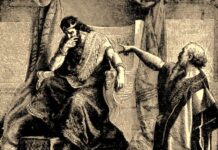





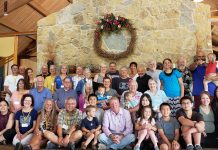

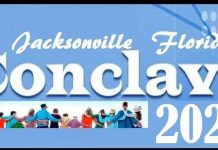

















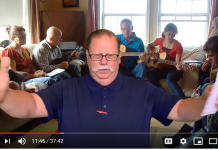







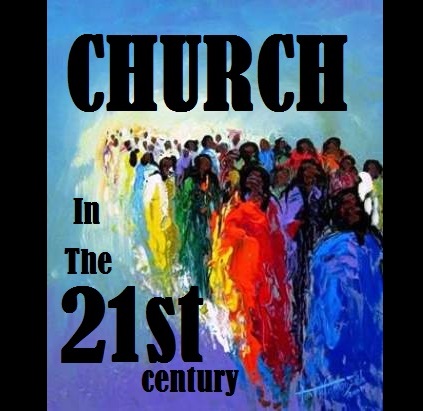






If we “follow the money” that is partly behind this “mess” in churches (through most of church history), your point 15 stands out: the majority of most churches’ finances go to buildings and salaries; in the early churches (and others like them since), the majority of finances went to the poor, widows, and orphans. These humble churches among the lowly and neglected do little to change their nation or world; but they do follow their leader, who became a servant and humbled himself, becoming obedient unto death, even death on a cross (partly as punishment for his challenge to the religious and national leaders of his day).
In the first century church, the only source of doctrinal teaching is the Old Testament. The early disciples depend only upon Holy Spirit’s guidance. No educational degrees in theology and philosophy. Only just fishermen and ordinary men of knowledge. Today in the 21st century churches have been devised by men and has manipulated and corrupted (both the O.T and N.T) the entire Word of God for personal gains and selfish motives (2 Timothy 3:1,5,7, 13, 4:3-4/ 1 Timothy 6:9-10).
[…] Shifts and Regression in the 21st Century Church- this is an extensive comparison contrasting the differences between the church of the first […]
Interesting points. The question I must ask is concerning your preferred view of Church government. Why did the Apostles appoint Elders and deacons if they did not intend for local oversite and autonomy? Are you saying that Church government is not God’s will? If not, which kind is Holy Spirit ordained?
The only church government that is ordained by the Lord is that which is founded on relationships and love. All positional rule based on titles is man made and human.